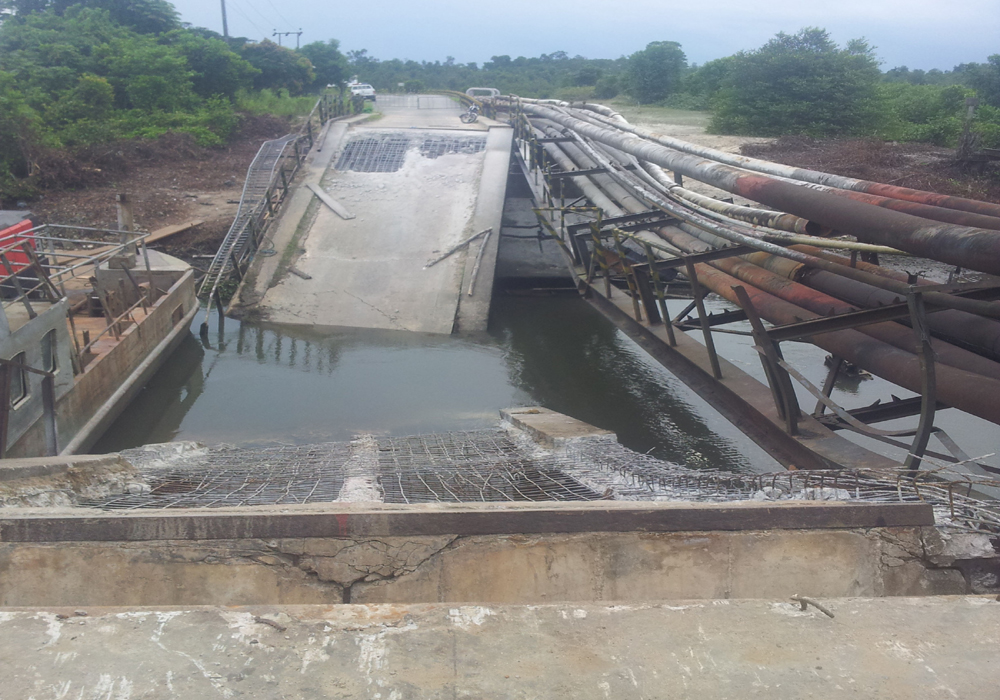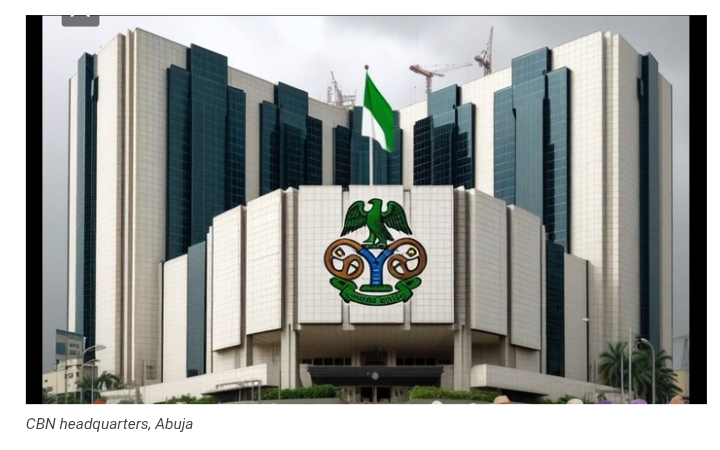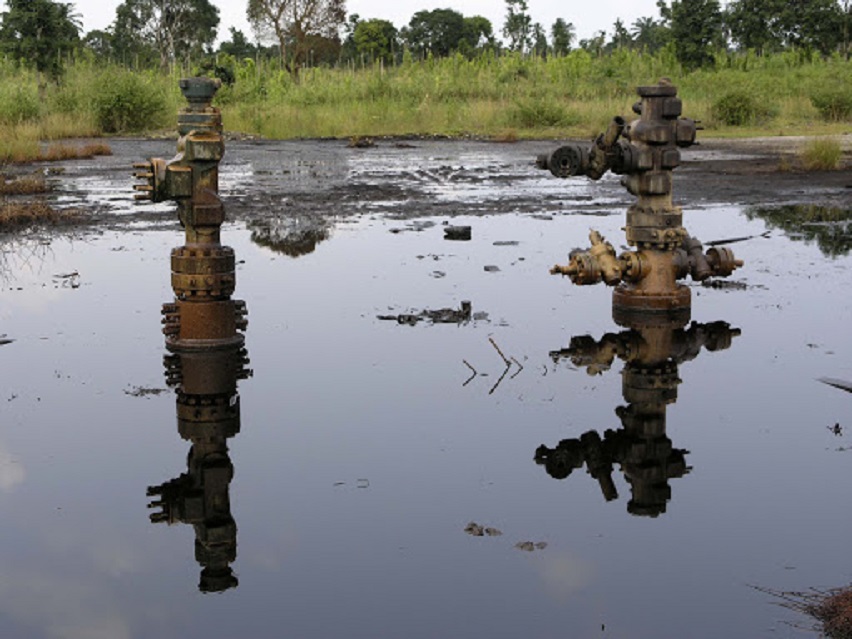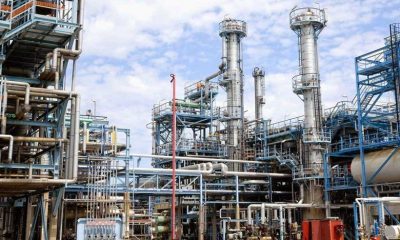Feature/OPED
Saving Ubeji Community in Delta State From Devastating Impacts of Gas Flaring

By Jerome-Mario Utomi
If President Bola Ahmed Tinubu-led federal government is desirous of ending gas flaring in the country, then, the administration should consider as urgent, taking both practical and pragmatic steps to save the people of Ubeji Community, a sleepy satellite community located around the Warri petrochemical company in Warri South local government area of Delta State, from the choking soot which reportedly emanates from the towering chimney that pierces the skyline of the community, a facility reportedly owned by a famous gas company in the country.
Again, if the Governor of Delta State, Sheriff Oborevwori, recognises that the provision of security and pursuit of the economic welfare of the citizens are the only two constitutional responsibilities which all leaders must achieve, which the current circumstances in Ubeji community, one of the Governor’s mandate communities clearly and woefully demonstrate the opposite, the state governor needs to take urgent and coordinated action aimed at resolving the ongoing unacceptable pollution arising from gas flaring reportedly by the organisation.
Aside from the awareness that the community has been suffering from the gas flaring pollution for decades and the entire environment and ecosystem destroyed because the flaring is an everyday action as it never goes off at all, a visit to the community reveals a people faced with increased socioeconomic difficulties with no record of survival if something is not done urgently to save the situation.
Though the community has not vanished physically, many of the residents have been sacked by the pollution and businesses within the space destroyed. Some families have been decimated and dispersed.
Those that chose to stay back in the community have been ‘absorbed’ by the pollution. They no longer enjoy economic, social and healthy progress that flows from good governance and social cohesion; their lives are now fraught with uncertainty!
“The flaring from the company is severely disturbing us. In my house, just like elsewhere in the neighbourhood, you will see the black carbon smeared all over the place. The heat from that facility is also disturbing us. It’s a never-ending cycle. We paint our houses, and it blackens again. How long can we keep up?” a resident of Agberuku Crescent in Ubeji Community queried.
If the above description is a challenge, the next comment from another resident amply qualifies as a crisis.
“My wife too happens to be a high BP (blood pressure) patient as a result of this gas flaring. When I took her to the hospital, the doctor asked me if I stay in an environment with questionable activities and I answered in the affirmative. Consequently, he advised that I should relocate her away from there and that was how my family left.
“For about four or five years now that they have been away from here, none of them has called to report any health challenge. When they are here, you will find the soot even in the nostrils of the children when they wake up in the morning. Everything is coated with soot.
“Our health is at stake here. We live in constant fear of what this pollution is doing to us and our children. Something must be done.
“I have stopped drinking water from my house. I strictly take bottled water which I carry everywhere I go.
“There was a time I kept experiencing a runny stomach. I kept going to the hospital, not for malaria, but for different health issues. Then, the doctor asked that I should check what I eat as I might be frequently poisoned.
“So, I decided to check my kitchen and discovered that every wipe on my utensil; pots, cups, spoons, plates and surfaces was filled with soot. This meant that everything we eat is soot.
“There was a time I was stooling for three months straight. As you can see, I have a runny nose which has refused to abate. It is always like this all year long; from January to December. To breathe is a problem.
“If I cook food, I have to cover it immediately because if I don’t… Even the lead of the pots, when you wipe it, you will see the black carbon.
“So, we are not safe. Sometimes, we see some strange reactions on our skins. We go the extra mile to treat ourselves and seek medical attention. We are indeed strong as Africans, but this is beyond us. I keep reacting to a certain allergy. I keep sneezing and even if you come back in the next three months, I am still sneezing.
“So, I am on a steady dose of Vitamin C. It got to a point that I thought that the Nigerian brands were not effective, I had to bring in Vitamin C from Canada but it didn’t change anything,” another resident said.
Indeed, while Nigeria and Nigerians persevere to encounter gas flaring in the country despite the enormous health and economic woes inherent, this piece on its part believed and still believes that the time has come for the Federal Government to ensure that operators in the nation’s crude oil and sector comply fully with all the enabling laws in the country prohibiting gas flaring.
The reason is not farfetched.
Ubeji Community in Warri, Delta state is, but just one out of hundreds of communities in the region suffering a similar fate. There are countless examples.
A tour by boat of creeks and coastal communities of Warri South West and Warri North Local Government Areas of Delta State will amply clarify this position. Another journey by road from Warri via Eku-Abraka to Agbor, and a similar trip from Warri through Ughelli down to Ogwuashi Ukwu in Aniocha Local Government of the state, shows an environment where people cannot properly breathe as it is littered with gas flaring points.
Again, the federal government must ensure that justice is delivered to the good people of Ubeji Community and others within the region because gas flaring is an action taken by the operators based on economic gains as against human health and safety considerations.
Take, as an illustration, from what experts are saying, the major reason for flaring of gasses is that when crude oil is extracted from onshore and offshore oil wells, it brings with it raw natural gas to the surface and where natural gas transportation, pipelines, and infrastructure are lacking, like in the case of Nigeria, this gas is instead burned off or flared as a waste product as this is the cheapest option. This has been going on since the 1950s when crude oil was first discovered in commercial quantities in Nigeria.
Aside from the economic and health losses arising from gas flaring, another important reason why the federal government must rise to this clarion call, using the Ubeji Community as a case study, is that for a very long time, the nation Nigeria has been on this particular case without tangible result.
Successive federal governments made what could be best described as a mere declaration of intent without the political will to enforce such laws.
In 2016, President Muhammadu Buhari-led administration enacted Gas Flare Prohibition and Punishment), an act that among other things made provisions to prohibit gas flaring in any oil and gas production operation, blocks, fields, onshore or offshore, and gas facility treatment plants in Nigeria.
On Monday, September 2, 2018, the then Minister of State for Petroleum, Ibe Kachikwu, while speaking at the Buyers’ Forum/stakeholders’ Engagement organised by the Gas Aggregation Company of Nigeria in Abuja, said, “I have said to the Department of Petroleum Resources, beginning from next year (2019 emphasis added), we are going to get quite frantic about this (ending gas flaring in Nigeria) and companies that cannot meet with extended periods –the issue is not how much you can pay in terms of fines for gas flaring, the issue is that you would not produce. We need to begin to look at the foreclosing of licenses.”
That threat has since ended in the frames as the Minister did little or nothing to get the threat actualized.
The administration also launched the now abandoned National Gas Flare Commercialization Programme (NGFCP), a programme, according to the federal government aimed at achieving the flares-out agenda/zero routine gas flaring in Nigeria by 2020.
Again, like a regular trademark, it failed.
Away from Buhari’s administration, in 1979, the then federal government, in a similar style, came up with the Associated Gas Re-injection Act which summarily prohibited gas flaring and also fixed the flare-out deadline for January 1, 1984. It failed in line with the leadership philosophy in the country.
Similar feeble and deformed attempts were made in 2003, 2006, and 2008.
In the same style and span, precisely on July 2, 2009, the Nigerian Senate passed a Gas Flaring (Prohibition and Punishment) Bill 2009 (SB 126) into Law fixing the flare-out deadline for December 31, 2010- a date that slowly but inevitably failed. Not stopping at this point, the FG made another attempt in this direction by coming up with the Petroleum Industry Bill which fixed the flare-out deadline for 2012. The same Petroleum Industry Bill (PIB) was protracted till 2021 when it completed its circle and was subsequently signed into law by President Buhari, as the Petroleum Industry Act (PIA).
Despite this vicious movement to save the industry, the environment and its people, the Niger Delta challenge remains.
Utomi Jerome-Mario is the Programme Coordinator (Media and Policy) for Social and Economic Justice Advocacy (SEJA), Lagos. He can be reached via je*********@***oo.com/08032725374
Feature/OPED
Brent’s Jump Collides with CBN Easing, Exposes Policy-lag Arbitrage

Nigeria is entering a timing-sensitive macro set-up as the oil complex reprices disruption risk and the US dollar firms. Brent moved violently this week, settling at $77.74 on 02 March, up 6.68% on the day, after trading as high as $82.37 before settling around $78.07 on 3 March. For Nigeria, the immediate hook is the overlap with domestic policy: the Central Bank of Nigeria (CBN) has just cut its Monetary Policy Rate (MPR) by 50 basis points to 26.50%, whilst headline inflation is still 15.10% year on year in January.
“Investors often talk about Nigeria as an oil story, but the market response is frequently a timing story,” said David Barrett, Chief Executive Officer, EBC Financial Group (UK) Ltd. “When the pass-through clock runs ahead of the policy clock, inflation risk, and United States Dollar (USD) demand can show up before any oil benefit is felt in day-to-day liquidity.”
Policy and Pricing Regime Shift: One Shock, Different Clocks
EBC Financial Group (“EBC”) frames Nigeria’s current set-up as “policy-lag arbitrage”: the same external energy shock can hit domestic costs, FX liquidity, and monetary transmission on different timelines. A risk premium that begins in crude can quickly show up in delivered costs through freight and insurance, and EBC notes that downstream pressure has been visible in refined markets, with jet fuel and diesel cash premiums hitting multi-year highs.
Market Impact: Oil Support is Conditional, Pass-through is Not
EBC points out that higher crude is not automatically supportive of the naira in the short run because “oil buffer” depends on how quickly external receipts translate into market-clearing USD liquidity. Recent price action illustrates the sensitivity: the naira was quoted at 1,344 per dollar on the official market on 19 February, compared with 1,357 a week earlier, whilst street trading was cited around 1,385.
At the same time, Nigeria’s inflation channel can move quickly even during disinflation: headline inflation eased to 15.10% in January from 15.15% in December, and food inflation slowed to 8.89% from 10.84%, but energy-led transport and logistics costs can reintroduce pressure if the risk premium persists. EBC also points to a broader Nigeria-specific reality: the economy grew 4.07% year on year in 4Q25, with the oil sector expanding 6.79% and non-oil 3.99%, whilst average daily oil production slipped to 1.58 million bpd from 1.64 million bpd in 3Q25. That mix supports external-balance potential, but it also underscores why the domestic liquidity benefit can arrive with a lag.
Nigeria’s Buffer Looks Stronger, but It Does Not Eliminate Sequencing Risk
EBC sees that near-term external resilience is improving. The CBN Governor said gross external reserves rose to USD 50.45 billion as of 16 February 2026, equivalent to 9.68 months of import cover for goods and services. Even so, EBC views the market’s focus as pragmatic: in a risk-off tape, investors tend to price the order of transmission, not the eventual balance-of-payments benefit.
In the near term, EBC expects attention to rotate to scheduled energy and policy signposts that can confirm whether the current repricing is a short, violent adjustment or a more durable regime shift, including the U.S. Energy Information Administration (EIA) Short-Term Energy Outlook (10 March 2026), OPEC’s Monthly Oil Market Report (11 March 2026), and the U.S. Federal Reserve meeting (17 to 18 March 2026). On the domestic calendar, the CBN’s published schedule points to the next Monetary Policy Committee meeting on 19 to 20 May 2026.
Risk Frame: The Market Prices the Lag, Not the Headline
EBC cautions that outcomes are asymmetric. A rapid de-escalation could compress the crude risk premium quickly, but once freight, insurance, and hedging behaviour adjust, second-round effects can linger through inflation uncertainty and a more persistent USD bid.
“Oil can act as a shock absorber for Nigeria, but only when the liquidity channel is working,” Barrett added. “If USD conditions tighten first and domestic pass-through accelerates, the market prices the lag, not the headline oil price.”
Brent remains an anchor instrument for tracking this timing risk because it links energy-led inflation expectations, USD liquidity, and emerging-market risk appetite in one market. EBC Commodities offering provides access to Brent Crude Spot (XBRUSD) via its trading platform for following energy-driven macro volatility through a single instrument.
Feature/OPED
Gen Alpha: Africa’s Digital Architects, Not Your Target Audience

By Emma Kendrick Cox
This year, the eldest Gen Alpha turns 16.
That means they aren’t just the future of our work anymore. They are officially calling for a seat at the table, and they’ve brought their own chairs. And if you’re still calling this generation born between 2010 and 2025 the iPad generation, then I hate to break it to you, but you’re already obsolete. To the uninitiated, they look like a screen-addicted mystery. To those of us paying attention, they are the most sophisticated, commercially potent, and culturally fluent architects Africa has ever seen.
Why? Because Alphas were not born alongside the internet. They were born inside it. And by 2030, Africa will be home to one in every three Gen Alphas on the planet.
QWERTY the Dinosaur
We are witnessing the rise of a generation that writes via Siri and speech-to-text before they can even hold a pencil. With 63% of these kids navigating smartphones by age five, they don’t see a QWERTY keyboard as a tool. They see it as a speed bump, the long route, an inefficient use of their bandwidth. They don’t need to learn how to use tech because they were born with the ability to command their entire environment with a voice note or a swipe.
They are platform agnostic by instinct. They don’t see boundaries between devices. They’ll migrate from an Android phone to a Smart TV to an iPhone without breaking their stride. To them, the hardware is invisible…it’s the experience that matters.
They recognise brand identities long before they know the alphabet. I share a home with a peak Gen Alpha, age six and a half (don’t I dare forget that half). When she hears the ding-ding-ding-ding-ding of South Africa’s largest bank, Capitec’s POS machine, she calls it out instantly: “Mum! Someone just paid with Capitec!” It suddenly gives a whole new meaning to the theory of brand recall, in a case like this, extending it into a mental map of the financial world drawn long before Grade 2.
And it ultimately lands on this: This generation doesn’t want to just view your brand from behind a glass screen. They want to touch it, hear it, inhabit it, and remix it. If they can’t live inside your world, you’re literally just static.
The Uno Reverse card
Unlike any generation we’ve seen to date, households from Lagos to Joburg and beyond now see Alphas hold the ultimate Uno Reverse card on purchasing power. With 80% of parents admitting their kids dictate what the family buys, these Alphas are the unofficial CTOs and Procurement Officers of the home:
-
The hardware veto: Parents pay the bill, but Alphas pick the ISP based on Roblox latency and YouTube 4K buffers.
-
The Urban/Rural bridge: In the cities, they’re barking orders at Alexa. In rural areas, they are the ones translating tech for their families and narrowing the digital divide from the inside out.
-
The death of passive: I’ll fall on my sword when I say that with this generation, the word consumer is dead. It implies they just sit there and take what you give them, when, on the contrary, it is the total opposite. Alphas are Architectural. They are not going to buy your product unless they can co-author the experience from end to end.
As this generation creeps closer and closer to our bullseye, the team here at Irvine Partners has stopped looking at Gen Alpha as a demographic and started seeing them as the new infrastructure of the African market. They are mega-precise, fast, and surgically informed.
Believe me when I say they’ve already moved into your industry and started knocking down the walls. The only question is: are you building something they actually want to live in, or are you just a FaceTime call they are about to decline?
Pay attention. Big moves are coming. The architects are here.
Emma Kendrick Cox is an Executive Creative Director at Irvine Partners
Feature/OPED
Why Digital Trust Matters: Secure, Responsible AI for African SMEs?

By Kehinde Ogundare
For years, security for SMEs across sub-Saharan Africa meant metal grilles and alarm systems. Today, the most significant risks are invisible and growing faster than most businesses realise.
Artificial Intelligence has quietly embedded itself into everyday operations. The chatbot responding to customers at midnight, the system forecasting inventory requirements, and the software identifying unusual transactions are no longer experimental technologies. They are becoming standard features of modern business tools.
Last month’s observance of Safer Internet Day on February 10, themed ‘Smart tech, safe choices’, marked a pivotal moment. As AI adoption accelerates, the conversation must shift from whether businesses should use AI to how they deploy it responsibly. For SMEs across Africa, digital trust is no longer a technical consideration. It is a strategic business imperative.
The evolving threat landscape
Cybersecurity threats facing sub-Saharan African SMEs have moved well beyond basic phishing emails. Globally, cybercrime costs are projected to reach $10.5 trillion this year, fuelled by generative AI and increasingly sophisticated social engineering techniques. Ransomware attacks now paralyse entire operations, while other threats quietly extract sensitive customer data over extended periods.
The regional impact is equally significant. More than 70% of South African SMEs report experiencing at least one attempted cyberattack, and Nigeria faces an average of 3,759 cyberattacks per week on its businesses. Kenya recorded 2.54 billion cyber threat incidents in the first quarter of 2025 alone, whilst Africa loses approximately 10% of its GDP to cyberattacks annually.
The hidden risk of fragmentation
A common but often overlooked vulnerability lies in digital fragmentation.
In the early stages of growth, SMEs understandably prioritise affordability and agility. Over time, this can result in a patchwork of disconnected applications, each with separate logins, security standards, and privacy policies. What begins as flexibility can involve operational complexity.
According to IBM Security’s Cost of a Data Breach Report, companies with highly fragmented security environments experienced average breach costs of $4.88 million in 2024.
Fragmented systems create blind spots; each additional data transfer between applications increases exposure. Inconsistent security protocols make governance harder to enforce. Limited visibility reduces the ability to detect anomalies early. In practical terms, complexity increases risk.
Privacy-first AI as a competitive differentiator
As AI capabilities become embedded in business software, SMEs face a choice about how they approach these powerful tools. The risks are not merely theoretical.
Consumers across Africa are becoming more aware of data rights and are willing to walk away from businesses that cannot demonstrate trustworthiness. According to KPMG’s Trust in AI report, approximately 70% of adults do not trust companies to use AI responsibly, and 81% expect misuse. Meanwhile, studies also show that 71% of consumers would stop doing business with a company that mishandles information.
Trust, once lost, is difficult to rebuild. In the digital age, a single data leak can destroy a reputation that took ten years to build. When customers share their payment details or purchase history, they extend trust. How you handle that trust, particularly when AI processes their data, determines whether they return or take their business elsewhere.
Privacy-first, responsible AI design means building intelligence into business systems with data protection, transparency and ethical use embedded from the outset. It involves collecting only necessary information, storing it securely, being transparent about how AI makes decisions, and ensuring algorithms work without compromising customer privacy. For SMEs, this might mean choosing inventory software where predictive AI runs on your own data without sending it externally, or customer service platforms that analyse patterns without exposing individual records. When AI is built responsibly into unified platforms, it becomes a competitive advantage: you gain operational efficiency whilst demonstrating that customer data is protected, not exploited.
Unified platforms and operational resilience
The solution lies in rethinking digital infrastructure. Rather than accumulating disparate tools, businesses need unified platforms that integrate core functions whilst maintaining consistent security protocols.
A unified approach means choosing cloud-based platforms where functions share common security standards, and data flows seamlessly. For a manufacturing SME, this means inventory management, order processing and financial reporting operate within a single security framework.
When everything operates cohesively, security gaps diminish, and the attack surface shrinks. And the benefits extend beyond risk reduction: employees spend less time on administrative friction, customer data stays consistent, and platforms enable secure collaboration without traditional infrastructure costs.
Safer Internet Day reminds us that the digital world requires active stewardship. For SMEs across the African continent who are navigating complex threats whilst harnessing AI’s potential, digital trust is foundational to sustainable growth. Security, privacy and responsible AI are essential characteristics of any technology infrastructure worth building upon. Businesses that embrace unified, privacy-first platforms will be more resilient against cyber threats and better positioned to earn and maintain trust. In a market where trust is currency, that advantage is everything.
Kehinde Ogundare is the Country Head for Zoho Nigeria
-

 Feature/OPED6 years ago
Feature/OPED6 years agoDavos was Different this year
-
Travel/Tourism10 years ago
Lagos Seals Western Lodge Hotel In Ikorodu
-

 Showbiz3 years ago
Showbiz3 years agoEstranged Lover Releases Videos of Empress Njamah Bathing
-

 Banking8 years ago
Banking8 years agoSort Codes of GTBank Branches in Nigeria
-

 Economy3 years ago
Economy3 years agoSubsidy Removal: CNG at N130 Per Litre Cheaper Than Petrol—IPMAN
-

 Banking3 years ago
Banking3 years agoSort Codes of UBA Branches in Nigeria
-

 Banking3 years ago
Banking3 years agoFirst Bank Announces Planned Downtime
-

 Sports3 years ago
Sports3 years agoHighest Paid Nigerian Footballer – How Much Do Nigerian Footballers Earn





















